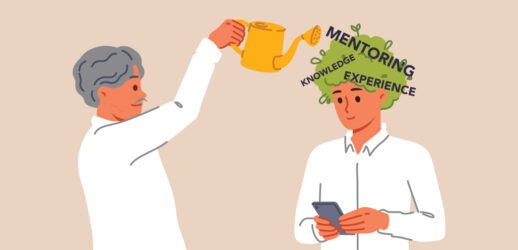Harnessing Emotions for a Healthier, More Successful You
Collectively, doesn’t it seem as if human emotions have been hijacked? That they’ve been usurped to divide rather than unite us? In our body politic, our media (social and otherwise), our popular culture, it sometimes seems as if we believe the only way to succeed is to be emotionally unfiltered and shrill.
And yet, nearly three decades ago two eminent psychology professors pointed out that those who are most effective in their personal and professional lives exhibit an intelligence that has little to do with being able to finish The New York Times crossword puzzle. Such people are in harmony with their emotions and those of others. They exhibit high emotional intelligence, or EQ. One of the coiners of this term, John D. Mayer of University of New Hampshire, defined EQ as “the ability to accurately perceive your own and others’ emotions; to understand the signals that emotions send about relationships; and to manage your own and others’ emotions.”
Mayer’s partner in pinpointing the integral role our emotions play in how we get through life was Peter Salovey, founder of Yale Center for Emotional Intelligence and now president of Yale University. He devoted years of study “to show that not only do emotions matter, but they matter in positive ways, that we have an emotional system for a reason.”
An Emotional New Year’s Resolution
 As we begin the new year with resolutions for self-improvement, why not put improving your EQ on the list? MPI Academy offers 10 courses that touch on the topic, including “The Meeting Professional’s Guide to Less Stress, More Joy and a Fulfilling Life.”
As we begin the new year with resolutions for self-improvement, why not put improving your EQ on the list? MPI Academy offers 10 courses that touch on the topic, including “The Meeting Professional’s Guide to Less Stress, More Joy and a Fulfilling Life.”
Ongoing research and case studies have amply demonstrated how important nurturing our EQ can be. Harvard Business Review sells a boxed set of EQ books for $99.99, and an HBR writer, Rutgers psychologist Daniel Goleman, has declared, “My research, along with other recent studies, clearly shows that emotional intelligence is the sine qua non of leadership.”
EQ can contribute to the well-being and success of every meeting professional, too. As Jeannie Power, CMP, co-founder of Power Event Group in Virginia, puts it, “Once you can effectively empathize with others, you can become more successful reading people and understanding their needs and concerns. You can also more successfully determine their strengths and weaknesses, build stronger relationships, and communicate and negotiate more effectively.”
10 Tips to Boost Your EQ
 Six Seconds, a global nonprofit organization dedicated to supporting people to create positive change, recommends 10 steps for enhancing EQ.
Six Seconds, a global nonprofit organization dedicated to supporting people to create positive change, recommends 10 steps for enhancing EQ.
- Learn the language of emotion. It’s important to be able to understand differences between similar emotions, such as feeling sad versus being overwhelmed.
- Name the emotion as it occurs. Neuroscience research has shown that simply naming an emotion when it occurs “helps us to calm the waters,” says Joshua Freedman, CEO of Six Seconds.
- Distance yourself. Research also underscores the effectiveness of observing your emotion from a slightly more neutral stance by saying, “I’m experiencing frustration,” instead of just “I’m frustrated.”
- Just observe. After naming it, just let the emotion be for a bit. Take a few deep breaths.
- Feel the emotion in your body. Acknowledge that each emotion has its physical effect—less limb sensations with sadness, chest sensations with surprise and fear, and so on.
- Bust the myth of bad emotions. Emotions are neurohormones released into our bodies, and they are all valuable. Fear, for example, focuses attention on a threat and motivate us to act. To improve your EQ, stop fighting your emotions.
- Notice emotions earlier. Before something really sets you off, change course.
- Learn your recurring patterns. “Our brains have a natural tendency to follow neural pathways that already exist,” Freedman says. When you identify these patterns, you can start practicing more effective reactions.
- Write down your feelings. Keep a log of your emotions throughout the day. Freedman calls this “an important practice of validation and part of the answer of how to improve emotional intelligence.”
- Remind yourself that emotions are only data. Emotions help us see more clearly. “When we stop fighting them, ignoring them or feeling suffocated by them, we gain an amazing resource,” Freedman says. He urges opening ourselves up to this data. “The next step,” he says, “is using it to choose exactly where we want to go.”




